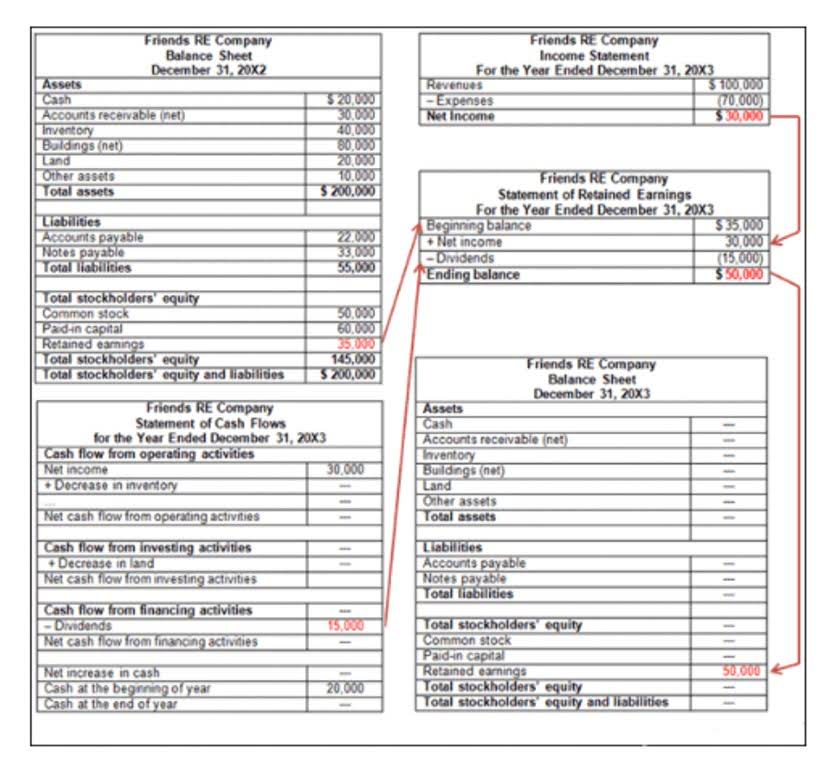Best Accounting Software Options for Small Business

This helps the company decide the future flow of work and plan out the details in terms of expenditure. These goals & objectives could be strategic or direct, long or short term and financial or otherwise. Budgets are legally binding and are used to monitor and control expenditure, ensuring that spending does not exceed appropriations.
- Whether you want to become certified or not, an advanced certificate can build on your expertise, strengthen and expand your skills and help you define and advance toward your personal and professional goals.
- For example, you can view key financial metrics and run basic reports like profit and loss, cash flow statements, and balance sheets.
- There’s no need to chase the invoices and receipts at the end of the quarter, and no chance of duplicating the documents.
- This platform is designed for independent landlords, so users don’t need to be property management pros to use it.
- Suppose Jacob, the purchase manager at a footwear manufacturing company named Amacon, is looking to purchase equipment for the business that can increase production.
Helping Understand Performance Variances
- Certified Management Accountants (CMAs) are required to achieve continuing education hours every year, similar to a Certified Public Accountant.
- Accountants in this system will provide almost immediate financial information for making decisions, assessing value streams, and measuring profitability.
- The software also provides secure access controls, allowing accounting professionals to set role-based permissions and encryption to protect sensitive financial data.
- Accountants frequently confront masses of data from which they would like to draw systematic and logical conclusions.
- By providing accessible, actionable data to employees at all levels, using management accounting techniques creates more agile operations where people can quickly respond to changing market conditions or internal challenges.
- When you treat project accounting as a separate, ongoing task throughout the project lifecycle, you get a meaningful understanding of how profitable your projects are without waiting around for annual reports to appear.
It is a fundamental principle used in assigning value and revenue attribution to the various business units. Essentially, transfer pricing in banking is the method of assigning the interest rate risk of the bank to the various funding sources and uses of the enterprise. Thus, the bank’s corporate treasury department will assign funding charges to the business units for their use of the bank’s resources when they make loans to clients. The treasury department will also assign funding credit to business units who bring in deposits (resources) to the bank. Although the funds transfer pricing process is primarily applicable to the loans and deposits of the various banking units, this proactive is applied to all assets and liabilities of the business segment. In fund accounting, resources are segregated into various funds, each with its own set of accounts and financial statements.
Data Driven Finance: Management Reporting Webinar
By understanding cost behavior, managers can make more accurate predictions about the impact of different production levels on the company’s finances. Having strong management accounting practices is crucial to a business because the information and support it provides enables the best possible business practices to be adopted and decisions to be what are retained earnings made in a better-informed manner. It allows the examination of each area or department individually, analysing their operations from a financial perspective in order to determine where improvements can be made. Management accounting examples, also known as cost accounting, is the process of assessing a company’s expenses and activities to generate internal financial reports, records, and accounts to assist managers in reaching their objectives. In other words, it is the process of deciphering financial and costing data and converting it into information that management and officials inside a company can use. Managerial Accounting contains reports prepared to fulfill the needs of managements.
- Overall, regulatory and compliance requirements play a crucial role in fund accounting for government entities.
- Performance measurement helps managers track progress, identify strengths and weaknesses, and make data-driven decisions to enhance overall organizational performance.
- Management accounting can serve as a unifying force, aligning diverse departments towards common financial goals and driving collective business success.
- It plays an important part in increasing a company’s profitability, and it encourages organisations to be cost-conscious and helps them avoid unnecessary expenses.
- Management accountants use numbers, data and research to help leadership minimize risk and maximize profit on behalf of the business.
Mastering Fund Accounting: Essential Insights for Government Financial Management

Headquartered in Fremont, California, SimplifyEm utilizes the latest in user experience and web technology to make life easier for busy real estate professionals. With clients across the U.S. and Canada, the platform is used to manage over $42 billion in property assets. Propertyware, a subsidiary of RealPage, specializes in single-family home property management. Founded in 1998 in Texas, RealPage has expanded globally, and Propertyware’s leadership Car Dealership Accounting team brings over 20 years of real estate experience. AppFolio’s software is the best for landlords in search of advanced features because it comes with 24/7 customer support, the ability to manage projects remotely, provides end-to-end marketing and leasing features, and more.

Managerial vs. Financial Accounting

By understanding key concepts such as cost behavior analysis, activity-based costing, and variance analysis, businesses can gain a competitive edge and enhance their decision-making processes. Managerial accounting provides a framework for performance measurement and benchmarking. By comparing management accounting system financial performance against industry standards or competitors, businesses can identify areas for improvement and set realistic performance targets. Performance measurement helps managers track progress, identify strengths and weaknesses, and make data-driven decisions to enhance overall organizational performance.
Steps to becoming a management accountant
- Job order costing is used for large projects where all costs are easily traceable to individual projects.
- Before we compare the two types of accounting, here are the important features of financial accounting.
- When you manage projects in Wrike, you’ll also have a collection of accounting features and templates to plan your project accounting, track your budgets and expenses throughout your project, and help you forecast future projects more accurately.
- Management accounting, she said, is a specialized type of accounting — a dialect within the language of business.
- That’s why many teams in these industries use project accounting alongside their regular financial accounting methods.
- Look for platforms with AI-powered decarbonization planning, scenario modeling, and tools to set and track science-based targets (SBTi-aligned).
Performance evaluation involves comparing actual financial results with budgeted or standard performance to identify areas of improvement. Financial accounting serves a different purpose to management accounting, because it’s generally aimed at providing information to external parties, while management accounting involves the development of financial information for internal use. Management accounts are presented to management and senior leadership within a company or organisation, whereas financial accounting is usually done for the benefit of potential investors, for banks or for government regulators and institutions. Often, financial accounting is required by law, while management accounting is undertaken optionally.

0 comments